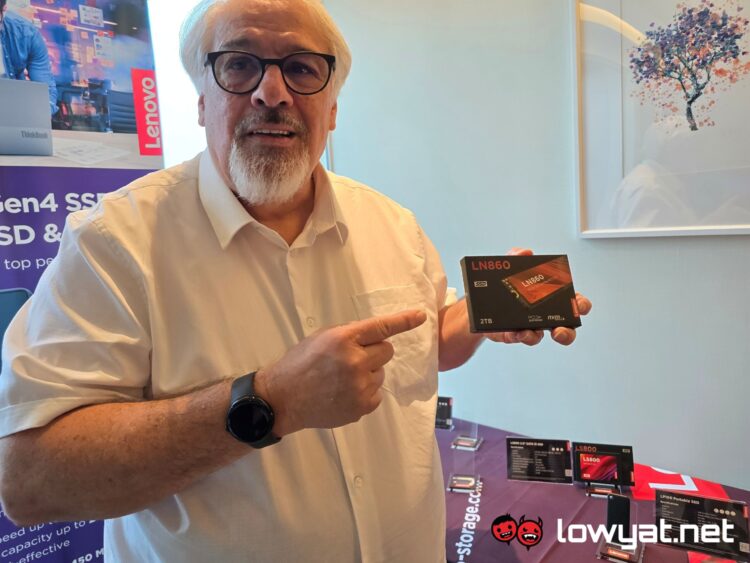Biwin isn’t a name you’d be familiar with, but it’s been around for 20 odd years. In that time, the brand has had its fingers in the pies of every popular tech brand that we know of.
Typically, Biwin operates behind the scenes, and the interesting thing about that is: it’s by design. Bob Snyder, our handler for the tour, simply told us that as a memory company, they make a bid to several known brands after a lengthy inspection process, and then proceed to sell its products under the name of said major brands.
To our surprise, these companies include the likes of Acer and Lenovo, both of which, according to Snyder, would say that they do not want the Biwin name to be on full display on the products. It’s only when you read the fine print at the bottom of a product’s spec sheet.
It’s not an exaggeration either: Snyder tells us that these brands go to great lengths to ensure that they get all the credit for the products and obfuscate their origins, even when it’s clear that Biwin is the OEM. To be clear, the brand does get recognition; it just can’t always tell the world about its achievements. Luckily, some brands do give recognition to the company’s distinct contribution and companies like Raspberry Pi even makes sure that the world knows about it.
As of this year, though, things are changing for Biwin as the company announced that it is launching its own memory and storage lineup. Its memory portfolio, known as Black Opal – the namesake of the world’s rarest gem in the world, even more so than diamond – is designed specifically for extreme overclocking, while their M.2 SSDs are PCIe 5.0-grade.
I did ask when Biwin when and if it would bring its products to Malaysia but sadly, Snyder wasn’t able to say. Hopefully, it’ll be sooner rather than later.
















